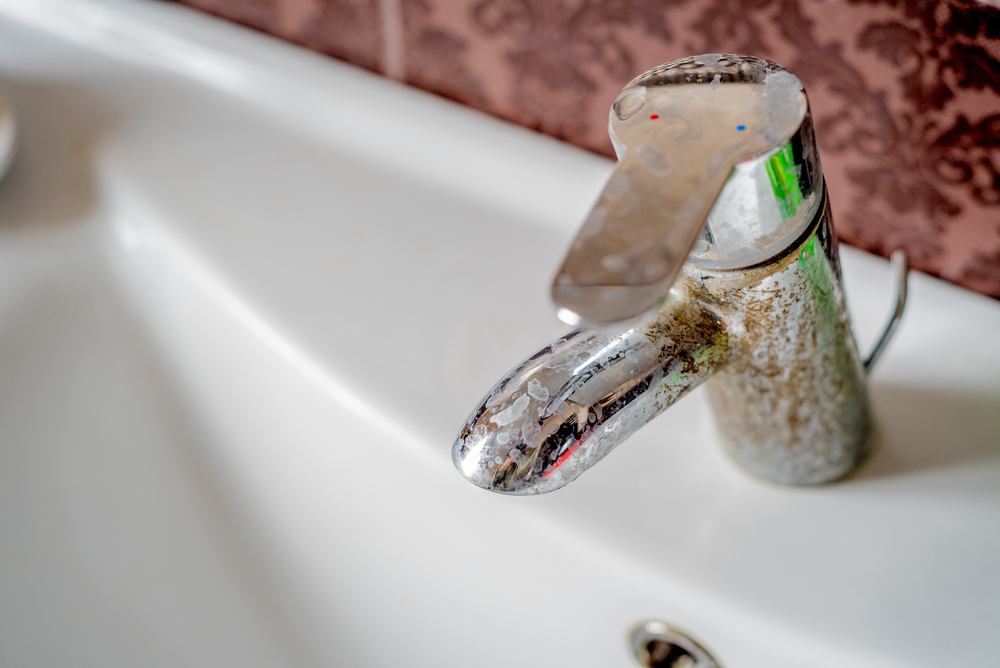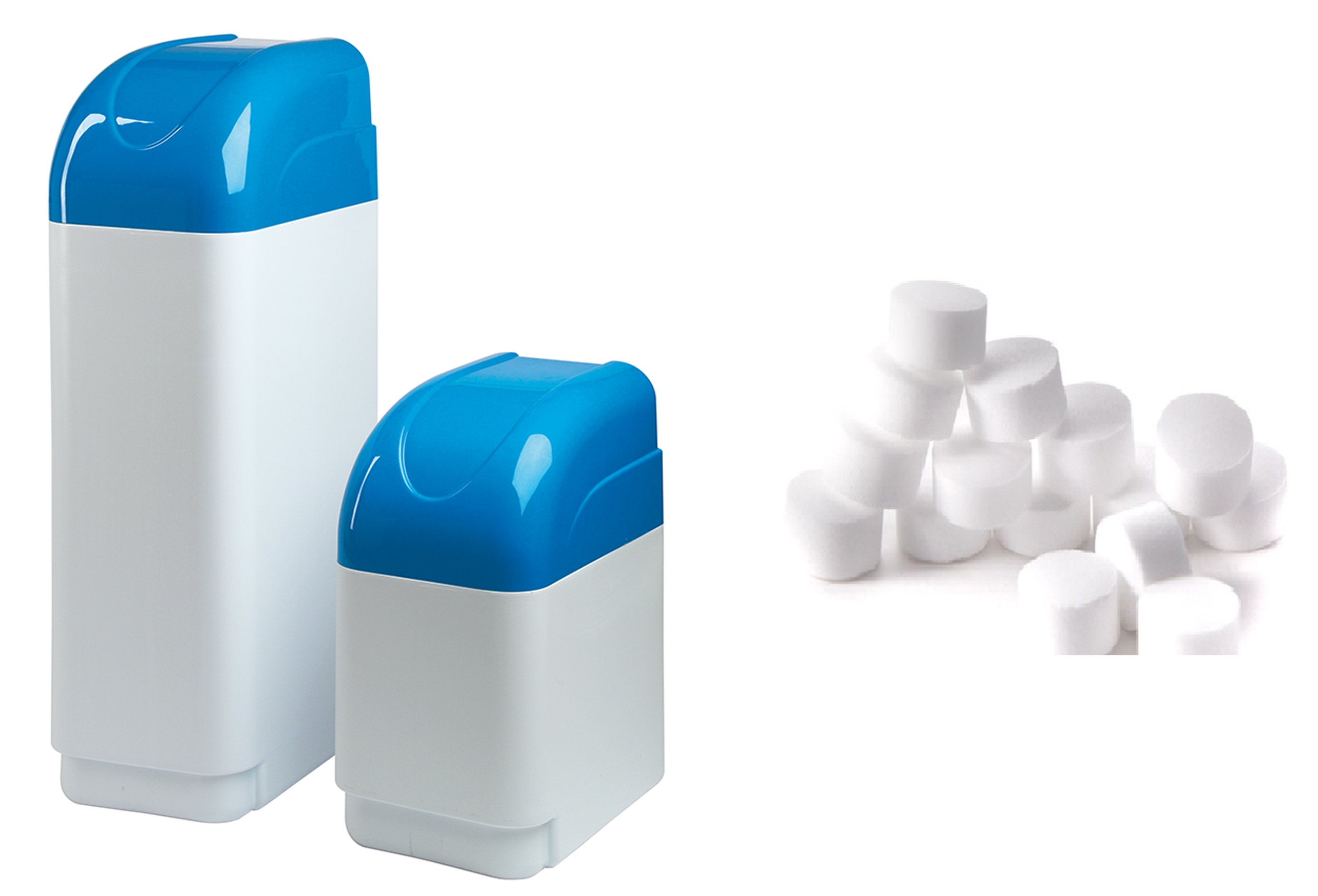7 Signs that You Need a Water Softening System at Home
If you find that your sinks are riddled with stains and your skin is dry and itchy, you might have a problem with hard water. If so, you might need a water softener. Water softening systems will help to increase the lifespan of your plumbing and your clothes, as well as reducing your budget.
Basically, water softeners take out extra calcium and magnesium ions using an exchange with sodium or potassium ions. Once this exchange takes place, the water softener will regenerate and flush the system of excess ions until it has recharged them with new sodium ions. In general, by preventing the buildup of scale, water softeners can increase the life of your water heater. Here are the seven signs you need a water softener.
1. You notice scale buildup on your appliances.
If you have scale, you likely have hard water. Mineral deposits can form on tea kettles and coffee pots — and they can also build up within the pipes. This clogs plumbing so much that your house is actually less effective at passing water through the pipes. The consequence of hard water is scale buildup and defective plumbing.
Scale, or “limescale,” is a hard, chalky substance made up of calcium and magnesium bicarbonate. These salts are what form the white chalky quality of the buildups. Water softeners can help to reduce this buildup of scale by using ion exchange technology.
2. Your skin and air is dry.
Hard water can actually cause itchy dry skin and hair because there’s so much extra calcium and magnesium salts floating around in your water. Soap and shampoo can only prevent this so much.
What happens is that water on your skin doesn’t nourish it — it just dries it out. Minerals in water settle on your skin and soap that doesn’t dissolve well in hard water can’t remove them. This leaves a residue on skin that irritates it and makes it feel dry and rough. Hard water blocks pores and causes more inflammation and black heads. It also makes your skin leathery and dry, while tarnishing it the way that glass without being rinsed will tarnish in the dishwasher.
3. Your clothes are gray and faded.
Noticing that your clothes and bedsheets now look faded is a sign of hard water. They may feel scratchy and be hard to wash because there is so much extra mineral substance contained in your water.
One thing you can do to reduce the grayness that comes from having hard water is to get a front loader washing machine with liquid detergent. You can actually get Calgon liquid water softening detergent or add vinegar to the fabric softening compartment. Try getting so sodium tripolyphosphate and adding it to your wash as well. In the end, the best way to get rid of this gray mineral quality in your laundry is to get the best water softener.
4. You see stains on the sinks and bathtubs.
Any stains left behind from mineral residue are a sign of hard water. These stains form when tap water evaporates, leaving behind calcium and magnesium. If you have noticed plaster-like deposits in the bathtub and on the faucets, there are ways to remove them. Use a little bit of vinegar and wipe around the base. You can also let the jets on your tub run for about 15 minutes and let soak for an hour or so. Pouring in a cup of bleach and a half cup powdered dishwasher detergent will also remove these mineral deposits. However, a potassium chloride water softener will be most effective at permanently removing stains and keeping them gone for good. You can pick up a water testing kit to determine how much mineral excess is in your water supply.
5. Your plumbing is in constant need of repair.
Steel pipes are the worst for hard water. They are easily damaged from buildup of limescale. Your water just won’t flow as well. Copper and PVC pipes do better with hard water. Since the flow in your pipes will become more restricted as the water pressure is lowered from too much mineral, limescale buildup will happen at a faster rate. If limescale starts building up around the valves in your washing machine and dishwasher, the valves can’t close completely, which leads to water leakage. This is a problem in reducing the lifespan of your home appliances. Repairing your plumbing on a regular basis is expensive and causes extra wear on the house, so it’s better to find a way to prevent it.
6. Your water bill is skyrocketing.
Your water usage will go up as your pipes have to work harder to let flow through. If you notice your bill has recently gone up, you might need to get a softener. Check with your local utility company to find out if your water falls on the soft or hard end of the water hardness scale. They can do a sample analysis to determine how hard it is and can tell you what chemicals are added to the water to keep it at a softer level. If they say it’s at a higher level of hardness, they’ll likely recommend you install a water softener to lower your bill.
7. Your glassware is brittle and easily damaged.
Getting rid of hard water stains on glassware can be a serious pain. It can also make them more prone to breaking easily. Try running your glasses through the dishwasher with a solution of 1/2 cup vinegar and no soap added. Try a few different cycles using just vinegar — more or less depending on how clean they are getting. This trick can work for silverware as well. The key is to avoid powdered soap in the dishwasher because powdered reagents are more abrasive and won’t dissolve completely most of the time. You can also soak your glasses in the sink for a while with water and vinegar to get rid of stains. Of course, using a water softener to eliminate hard water stains is likely the most effective course of action.


 BiH
BiH

